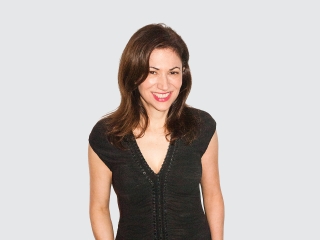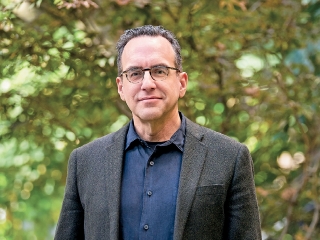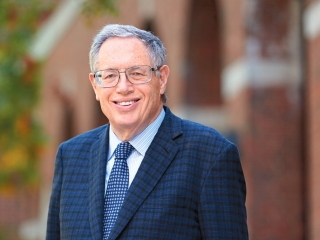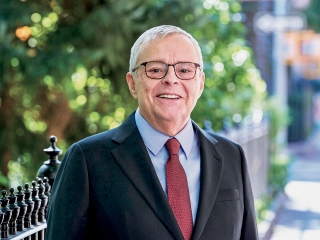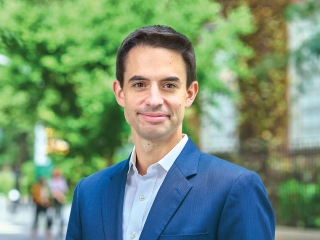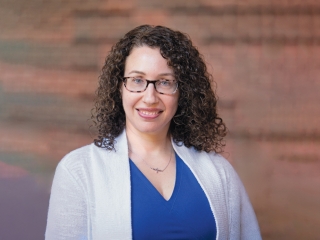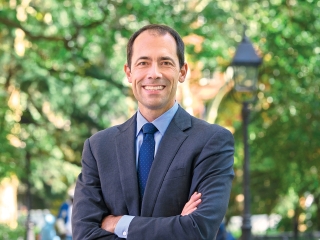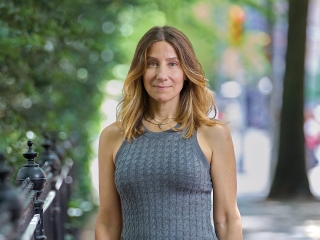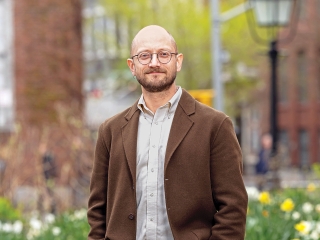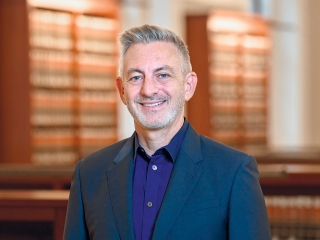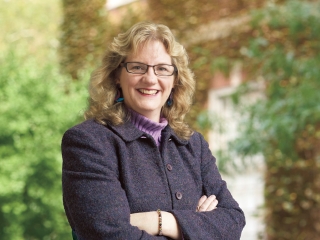Antitrust, Intellectual Property, & Information
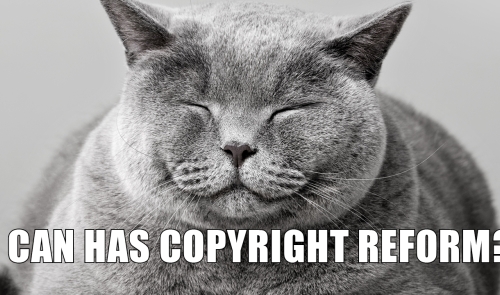
Overview
NYU Law’s curriculum covers the major areas of law that affect innovation and information policy: intellectual property law, including patents, copyrights, and trademarks; antitrust law and competition policy, including the study of US and European legal systems; and related topics, including information privacy.
Our faculty of law professors, economists, and noted practitioners explores these issues in a variety of settings, offering nearly 30 intellectual property courses a year, from basic courses to high-level seminars to independent directed research projects. Because IP law so often overlaps with greater issues of culture and business, it also draws in faculty with non-IP specializations, who cover subjects such as art law, biotechnology, fashion, and entertainment.
For students craving hands-on experience, the Technology Law and Policy Clinic provides the opportunity to represent clients on public interest issues and to work with the American Civil Liberties Union’s Speech, Privacy & Technology Project and National Security Project on issues and cases on their dockets.
The Colloquium on Innovation Policy, co-taught each Spring by two NYU Law faculty members, focuses each year on different aspects of the law’s role in promoting creativity and invention. Though the colloquium draws attendees from the New York area’s innovation policy community—including academics from other institutions, intellectual property and antitrust practitioners, and businesspeople—students are the heart of the colloquium, critiquing papers that outside speakers present, and presenting research papers of their own.
For those students who wish to pursue specialized graduate study in innovation and information policy, NYU Law offers the LLM in Competition, Innovation, and Information Law.
The robust IP and innovation course offerings at NYU Law are complemented by a vibrant intellectual life thanks to colloquia, centers, and regular events. Students interested in IP, information law, antitrust, and competition can participate in the dynamic, ongoing conversation with leaders from the field.
The Engelberg Center on Innovation Law & Policy sponsors interdisciplinary work in the area of innovation law and policy, with a particular focus on issues related to intellectual property. It draws together legal scholars and practitioners, economists, historians, culturalists, social scientists, and representatives of the innovation industries to examine questions on allocating global resources to creative activities, to study the legal regimes and cultural forces that influence innovation, to explore methods for optimizing the exploitation of intellectual products, and to search for new ways to facilitate the transfer of technology from creator to end-user, across fields, and among nations.
The Information Law Institute is an academic center for the study of law, policy, and social norms defining and affecting the flow of information in a digitally networked society. It hosts the Privacy Research Group, a weekly meeting of students, professors, and industry professionals who are passionate about exploring, protecting, and understanding privacy in the digital age.
At NYU Law, students are encouraged to take advantage of all the Law School has to offer, from working directly with faculty on their research, to getting involved with our centers, to participating in clinics and student organizations. In particular, students should explore the offerings of the Engelberg Center for Innovation Law & Policy and the Information Law Institute (ILI). Both of these centers host conferences and other events that may interest students and provide various other professional and research opportunities. Here are some additional opportunities for those specifically interested in IP and innovation law:
For Current Students
Student Groups and Journals
Student groups include the Art Law Society, the Intellectual Property & Entertainment Law Society, and the Media Law Collaborative. Journals include the Journal of Intellectual Property and Entertainment Law
Summer Associate Positions
Students interested in litigation or transactional work involving intellectual property or information law should consider seeking a summer associate position at a law firm after their second year of law school. Large law firms may have a group that specializes in the student’s area of interest. Smaller “boutique” firms may specialize only in the student’s area of interest. A comparison of multiple “top firm” lists available online in various intellectual property areas will usually yield a reasonably reliable list of firms which the student should research.
Summer Public Interest Positions
Students interested in litigation or policy issues involving intellectual property or information law should consider seeking a summer position with one of the numerous public interest organizations in the field, such as the Electronic Frontier Foundation, the Center for Democracy and Technology, the ACLU, or Public Knowledge.
For 3Ls and Recent Graduates
Fellowship
The Information Law Institute Research Fellowship offers fellows the time to progress in their own research, contribute to collaborative projects, and plan ILI events.
Master of Laws
The LLM in Competition, Innovation, and Information Law combines state-of-the-art policy and technical expertise with sophisticated legal analysis to create its unique approach to training students by developing an integrated understanding of the dynamic forces that shape contemporary economic activity and innovation. The International Finance and Development Fellowship Program provides a select number of LLM graduates with funding from the Law School to pursue a short-term fellowship at an international organization, such as the Organization for Economic Co-operation and Development.
Judicial Clerkships
Students are very strongly encouraged to pursue a federal clerkship either at the district or appellate court level. The bulk of intellectual property litigation occurs in the Second, Ninth, and Seventh Circuits and in the Federal Circuit (and, at the district level, in the SDNY, ND Cal., CD Cal., ND Ill., and ED Tex.), but clerkships in other venues will also likely involve intellectual property matters. Students with an interest in patent law may wish to place a priority on seeking a clerkship at the Federal Circuit.
The Patent Bar Exam
Students with the necessary science or engineering background are strongly encouraged to take the Patent Bar Exam, officially known as the “Examination for Registration to Practice in Patent Cases Before the United States Patent and Trademark Office.” Even if the student does not intend to prosecute patents before the USPTO, admission to the Patent Bar is a strong signal to potential employers of the student’s commitment to and proficiency in patent-related matters.
Other Opportunities
The Entrepreneurship and Venture Capital program (formerly the Venture Fund) empowers selected student and alumni entrepreneurs with summer grants, summer internships, and equity investments.
Faculty
Emily Kempin Professor of Law
John M. Desmarais Professor of Intellectual Property Law
Laurence A. Tisch Professor of Law
Director, Classical Liberal Institute
Dwight D. Opperman Professor of Public Law
Director, Center for Labor and Employment Law
Director, Institute of Judicial Administration
Assistant Professor of Law
Vice Dean, University Partnerships
Walter J. Derenberg Professor of Intellectual Property Law
John S. R. Shad Professor of Law
Alfred B. Engelberg Professor of Law and Economics
Boxer Family Professor of Law
Faculty Director, NYU Law in Buenos Aires
Director, Jacobson Leadership Program in Law and Business
Co-Director, Center for Law, Economics, and Organization
Associate Professor of Law
Professor of Law
Murray and Kathleen Bring Professor of Law
Co-Director, Engelberg Center on Innovation Law and Policy
Pauline Newman Professor of Law
Featured News

Antitrust Scholarship
Daniel Francis calls for looking past the profit paradigm in antitrust

IP Scholarship
Christopher Jon Sprigman explains what copyright can learn from its antitrust cousin
My NYU Law
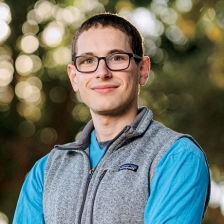
Daniel Ruskin ’24
Co-founder and CEO of Motif IP
“Founding an IP-based tech start-up has raised many complex questions that I wouldn’t have been able to think through on a higher level without my NYU Law education.”
I took Survey of Intellectual Property with Professor Scott Hemphill, who brought in antitrust and patent misuse themes. As a former Supreme Court clerk, he had a unique viewpoint on how and why IP law has developed over time, and we had great guest speakers such as Phil Weiser ’94, attorney general of Colorado, and senior Biden administration officials.
I was a 1L summer associate at Finnegan, Henderson, Farabow, Garrett & Dunner in Boston, a leading IP law firm, where I worked on a software patent case before the International Trade Commission. Since I took a year off between my 2L and 3L years to co-found and launch a new fintech product called Checkr Pay, I spent my 2L summer working full time. NYU Law supported my taking a hiatus to pursue that venture.
I’m now co-founder and CEO of Motif IP, which automates the patent workflow for start-ups to save the time and expense of manually filing patent applications. The client’s supporting materials—technical specifications, code, published papers, you name it—are fed into our “AI inference engine,” which translates everything into application documents reviewed by a patent practitioner before being submitted to the US Patent and Trademark Office
Areas of Study
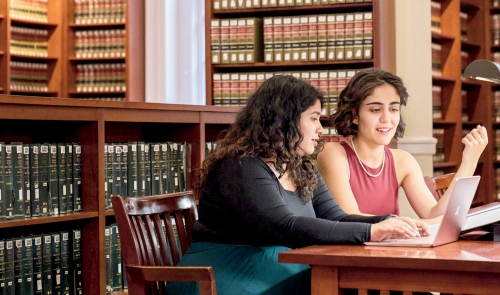
- Antitrust, Intellectual Property & Information
- Cities & Land Use
- Constitutional, Civil Rights, & Democracy
- Corporate & Commercial Law
- Criminal Justice
- Environmental
- Family, Gender, & Sexuality
- Global & International
- Human Rights
- Immigration
- Labor & Employment
- Law and Security
- Legal Theory, History, & the Social Sciences
- Litigation & Procedure
- Regulation & Public Policy
- Taxation


